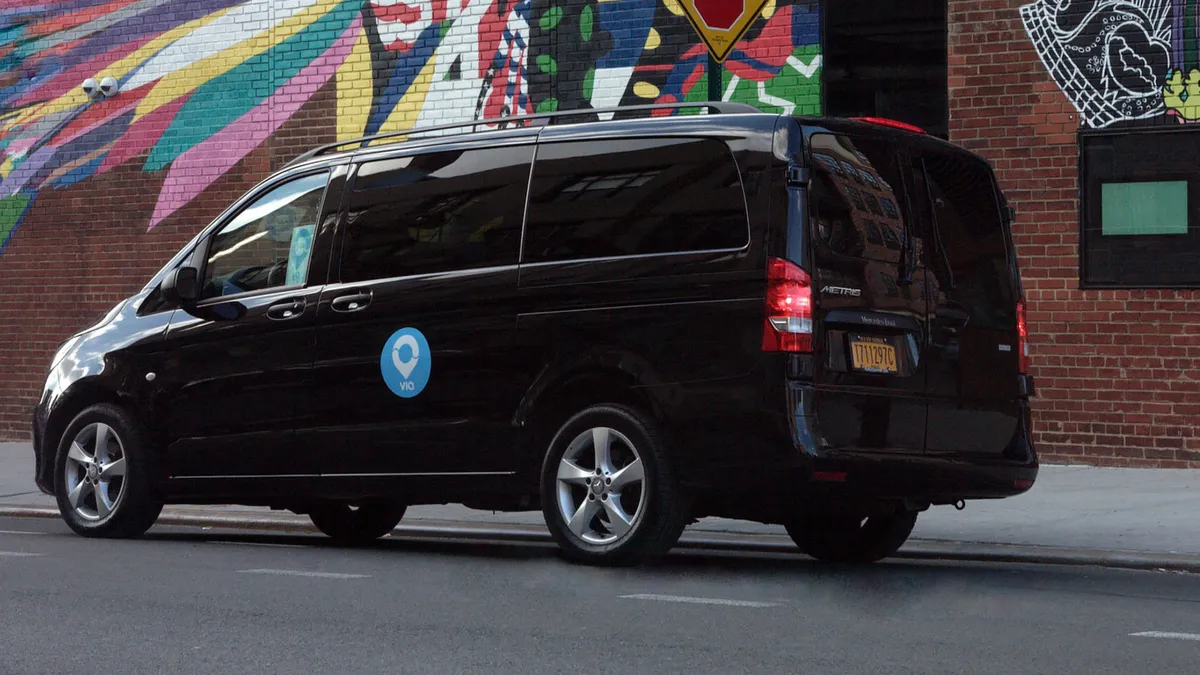Dive Brief:
- West Sacramento, CA and Arlington, TX have partnered with ride-share business Via to provide customers with an on-demand public transit option, according to PR Newswire and others.
- The service is marketed as a ride-share/transit hybrid. Customers will set pick-up and drop-off locations on the Via app just like other ride-shares, and then a van will pick up several riders headed in the same direction and make multiple stops along a route devised in real time.
- Service in Arlington will cost $3 per ride and will begin next month. West Sacramento is still working out its fee structure and expects to launch the service in spring 2018.
Dive Insight:
Via's service in Arlington will begin in December and will replace the city's one existing bus line, "the Max," which runs one route connecting the University of Texas at Arlington and with transit center south of the Dallas/Fort Worth International Airport. The Max bus service was a pilot program that expires at the end of this year, and city leaders say ridership has always been low. They believe that expanding its service would not benefit the community as much as a new, modern option.
Arlington leaders believe adding Via will fill the void left when the Max ceases to exist, and it will be more convenient for riders than having to get to a bus stop. With Via, a rider might have to walk a block or two to get to the group pickup point, but many riders will find that the on-demand pickup points will be far closer than traveling to a bus stop.
West Sacramento's leaders report they do not want to make buses obsolete or to compete with ride-share services like Uber and Lyft. They do, however, want to cut down the amount of time a single trip can cost each customer, which is a common complaint about bus service. Via will also be available in many areas where buses don't reach.
Via's service is similar to first mile/last mile ride-share options that other cities are testing, including the partnership between Lyft and the city of Phoenix. Municipalities' willingness to partner with ride-share businesses shows that they're paying attention to trends and residents' preferences rather than trying to force residents to conform to old transit business models. Citizens increasingly want the convenience that smartphone apps and on-demand services offer. With lagging bus ridership evident in many markets across the country, modernizing the transit system and making it more flexible could draw new riders. Plus, partnering with private ride-share providers eliminates the large up-front cost of adding or updating transit infrastructure.












